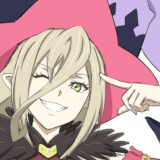cleverpun’s 2019 Reading Journal: January · 7:01am Feb 6th, 2019
Welcome to my reading journal. A common piece of writing advice is that to become a better writer, one should read a lot. There is truth to this, of course, depending on what one reads. Every month, I’ll run down all the books I’ve read, in about 300 words apiece. These aren’t full-blown reviews, but hopefully there’s still some useful information buried in them.
The Magicians by Lev Grossman
An urban fantasy about a high schooler—one Quentin Coldwater—who gets accepted into a magic school. Quentin has spent his life being an effortlessly good student, and reading and rereading the Fillory and Further books (a Narnia stand-in about some children who enter another world).
The first half of the book is about his time in magic school, replete with foreshadowing and slice of life hijinks. The second half is the actual plot, but I won’t spoil it too much (even though it’s not exactly hard to guess what it involves).
The books are not sunshine and rainbows, however. Despite taking some cues from Harry Potter, Narnia, and that whole genre, it has a very different approach to the magical school and other world genres. It is a pessimistic, deconstructive take on them, full of mature themes. A major idea of the book is that knowing magic, having power, even living life don’t automatically make you happy. Quentin is a jaded, pessimistic individual at the start of the book. A running theme is how getting everything he ever wanted doesn’t really make him a better person. Ennui, relationship drama, social and cultural obstacles all rear their heads often. And after the main villain is defeated, even when all the otherworldly—even lovecraftian—aspects of magic are laid bare, the story still returns to this idea.
In some ways, that’s the real villain of the book. Quentin may learn to do incredible things, may fight awful and alien creatures, but having a stable relationship or life goals elude him. After he graduates, he just bums around New York getting high and having sex for a while. It’s a blunt allegory, but that doesn’t make it less powerful.
Overall, this is exactly the kind of book I like. Science fiction/Fantasy that explores the philosophical implications of its world, its effect on the characters, whose climax and even villain are merely backdrops to a character piece.
Next month: Steelheart by Brandon Sanderson



I've been trying to read more fantasy myself. Got through The Princess Bride and The Fellowship of the Ring recently, and I'm not sure what genre(s) you would put Haruki Murakami's books in.
There are kids who grow up with fantasy as their home turf when it comes to genre fiction, and there are kids who choose science fiction for that. I was one of the latter.
5008887 I was also always more of a Science Fiction sort as well (although some fantasy stories, like The Hobbit, do have a place among my favorite books of all time). I always felt that science fiction was more...relevant, if that's the right word. As Rod Serling put it, "Fantasy is the impossible made probable. Science Fiction is the improbable made possible." Both genres are fundamentally similar, but they approach their fictional nature from two very different angles.
Brandon Sanderson is terrific! You'll love him.